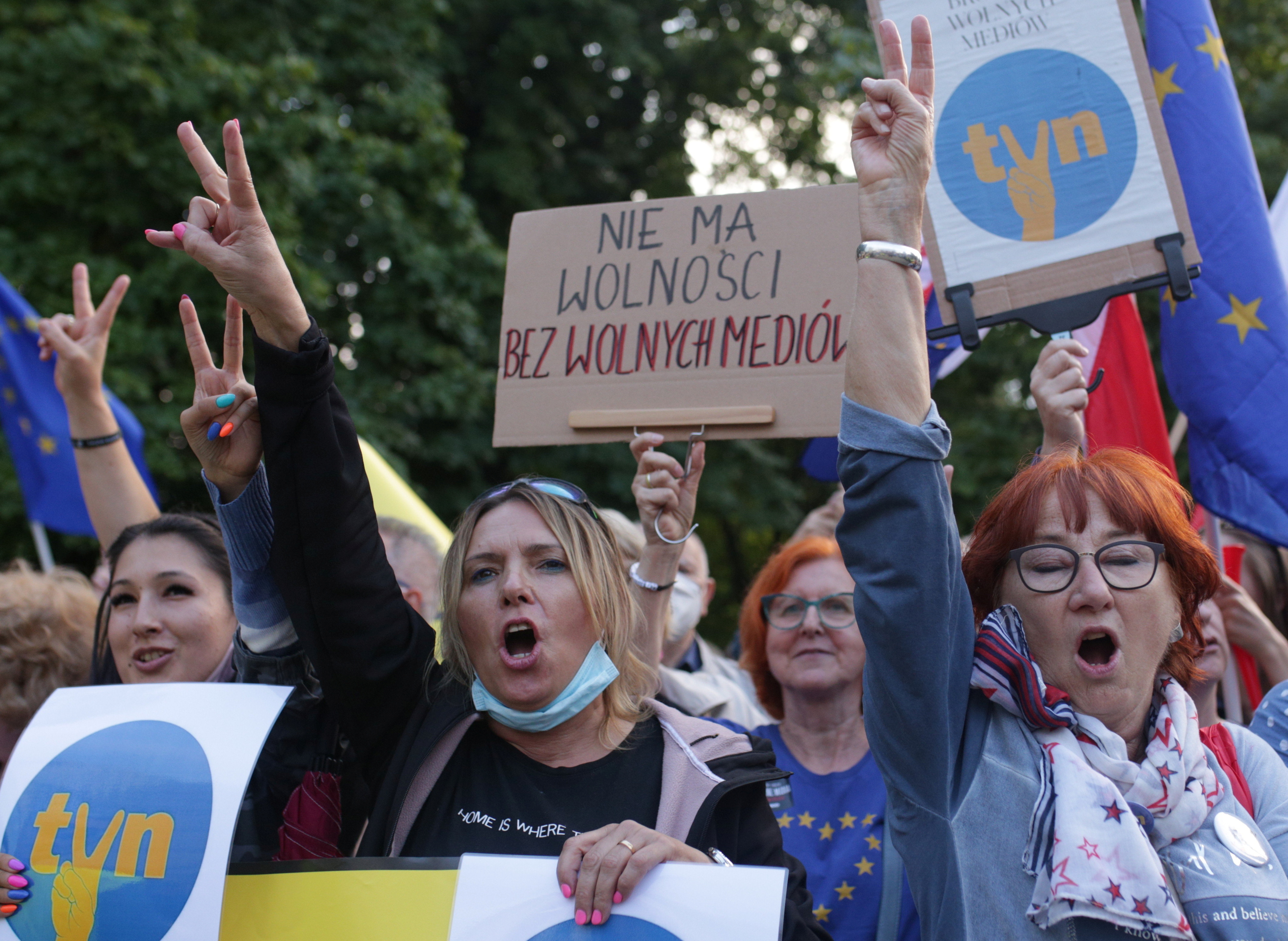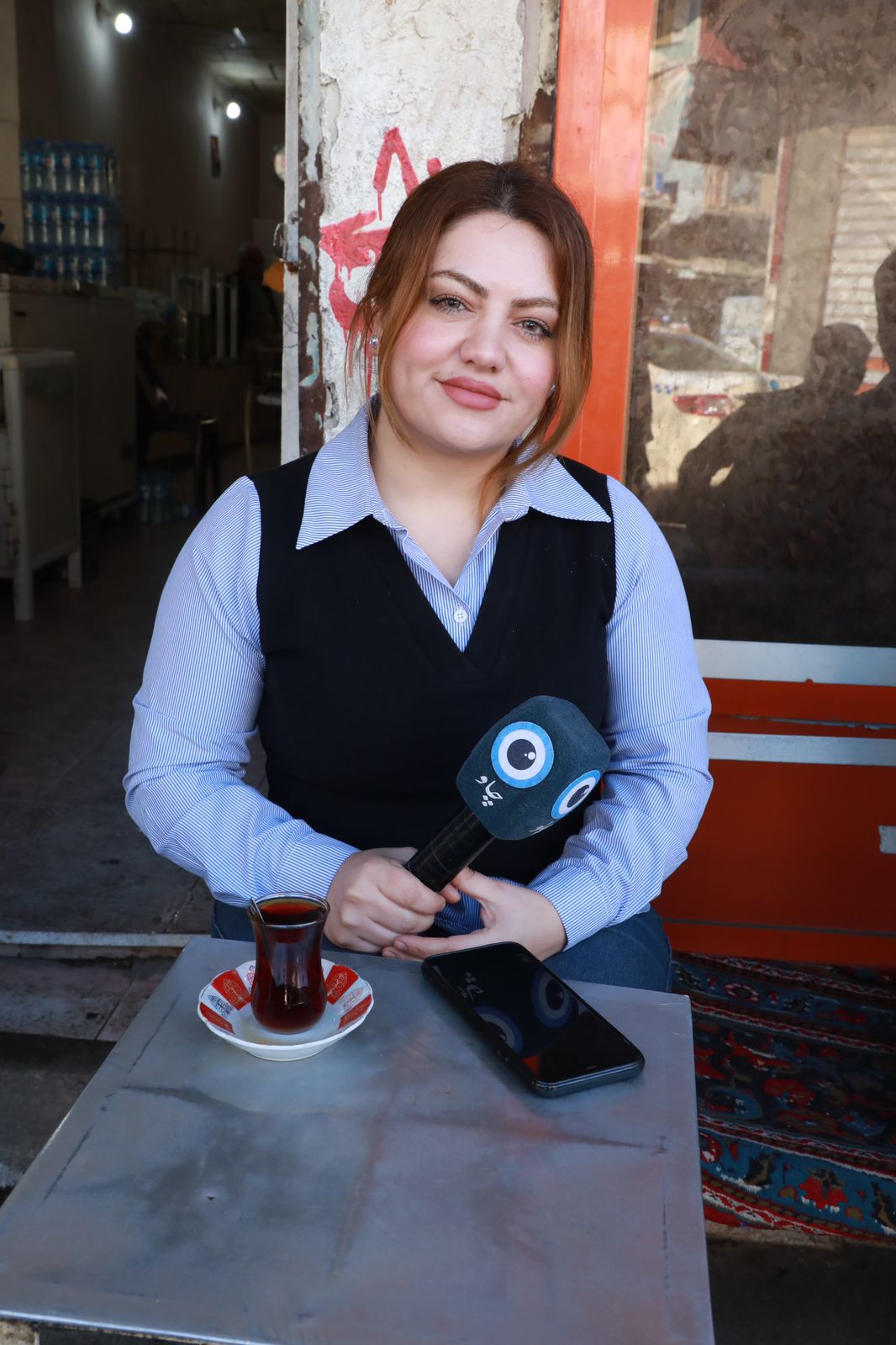
Reporters across Europe are working under increasingly challenging conditions and attempts to silence them have grown, the Committee to Protect Journalists has warned.
In an extensive study released on Wednesday, the US-headquartered organisation said that while the European Union has initiated laws to support media freedom over the years, progress in finding sustainable solutions to combat threats against journalists within the bloc has been slow.
“Some governments used the COVID-19 pandemic to control the media, including restricting access to journalists and withholding public-interest information. Russia’s all-out invasion of Ukraine in 2022 has tested the EU’s ability to protect journalist safety,” the report said.
More than 10 journalists were killed in Ukraine last year while many in Russia have been targeted by Moscow’s wartime censorship laws.
In its world press freedom index, nine of the top 10 countries are in Europe, but the CPJ argues that the environment is getting bleaker.
“Journalism and journalists are under threat like never before. If we look at the conditions in Europe, the intention to try to silence journalists has increased,” Tom Gibson, CPJ’s Europe representative, told Al Jazeera.
“In 2017, EU institutions in Brussels were shaken with the murder of Maltese journalist Daphne Caruana Galizia and later the killing of Slovakian journalist Jan Kuciak in 2018. These acted as a catalyst for the bloc to take actions to protect journalists.
“We have also seen a daily increase in online harassment and digital threats against journalists, including threats from very rich and powerful individuals who want to silence them through vexatious lawsuits called SLAPP – or strategic lawsuit against public participation,” he said.
Gibson lamented the lack of support for independent media, describing what he called “media capture” in some EU nations.
Some “governments seek to control media by financing them and undermine independent journalism”, he said, as he called on the EU to improve its role as a global leader in defending press freedom.
What has the EU done to tackle media control?
In her 2021 State of the Union speech to the European Parliament, Ursula von der Leyen, the European Commission president, highlighted that Europe needs a law to safeguard media freedom.
At the time, EU governments such as Hungary were accused of trying to control media companies and imprisoning journalists for reporting on the coronavirus pandemic.
In September 2022, the European Commission introduced the European Media Freedom Act (EMFA), seeking to protect “protect media pluralism and independence in the EU”.
But according to Gibson, some EU nations are actually putting up a bit of a fight to stop the EMFA from being adopted, since it addresses threats of “media capture”, and is also an anti-SLAPP directive.
Maltese journalist Daphne Caruana Galizia’s son and investigative journalist Matthew Caruana Galizia knows this struggle all too well.
“We were obviously really happy when the European Commission came out with the proposed legislation to tackle SLAPP lawsuits against journalists,” he told Al Jazeera.
“But the fact that some EU nations seek to water it down will not help journalists who are probably dealing with the same problems that my mother was dealing with, like facing a barrage of defamation cases that are almost all abusive,” he added.
Surveillance and spyware
The CPJ noted that while the European Parliament has set up a committee to investigate alleged breaches of EU law in the use of surveillance software, better solutions are needed.
For example, Gibson warned that some regulations aimed at tackling online surveillance threaten encryption.
In Greece, journalists Thanasis Koukakis, Stavros Malichoudis and Eliza Triantafillou say they have become targets of state-sanctioned surveillance because of their work.
Malichoudis said the EU should punish Athens, which has admitted to some spying allegations.
“The government is spying on practically every person who holds them accountable. As long as they do that, there should be a law restricting them from accessing EU funds,” he told Al Jazeera.
So far, the EU has taken action to address the rule of law and press freedom issues in Poland and Hungary by holding back funds.
EU’s role abroad
The CPJ also called on the EU to take more initiative in protecting press freedom outside Europe.
“The EU’s response internationally is dependent on its trade relations or political interests. But the EU can play a role like they did in the Philippines in defence of Maria Ressa, Nobel Peace Prize winner and editor of Rappler,” Gibson said.
Znar Abdalla Mohammad, a journalist from Sulaymaniyah, in the Kurdistan region of Iraq, and currently an asylum seeker, told Al Jazeera that the EU and United Kingdom should do more to protect refugee journalists.
“A special law to deal with the visa and asylum issues of journalists who become refugees in the UK and Europe will help,” said the 30-year-old, who was threatened in Iraq over her reporting and now lives in the UK.
Gibson said the EU should prioritise visas for refugee journalists “so that they have safer and quicker options to seek refuge and continue their work”.







